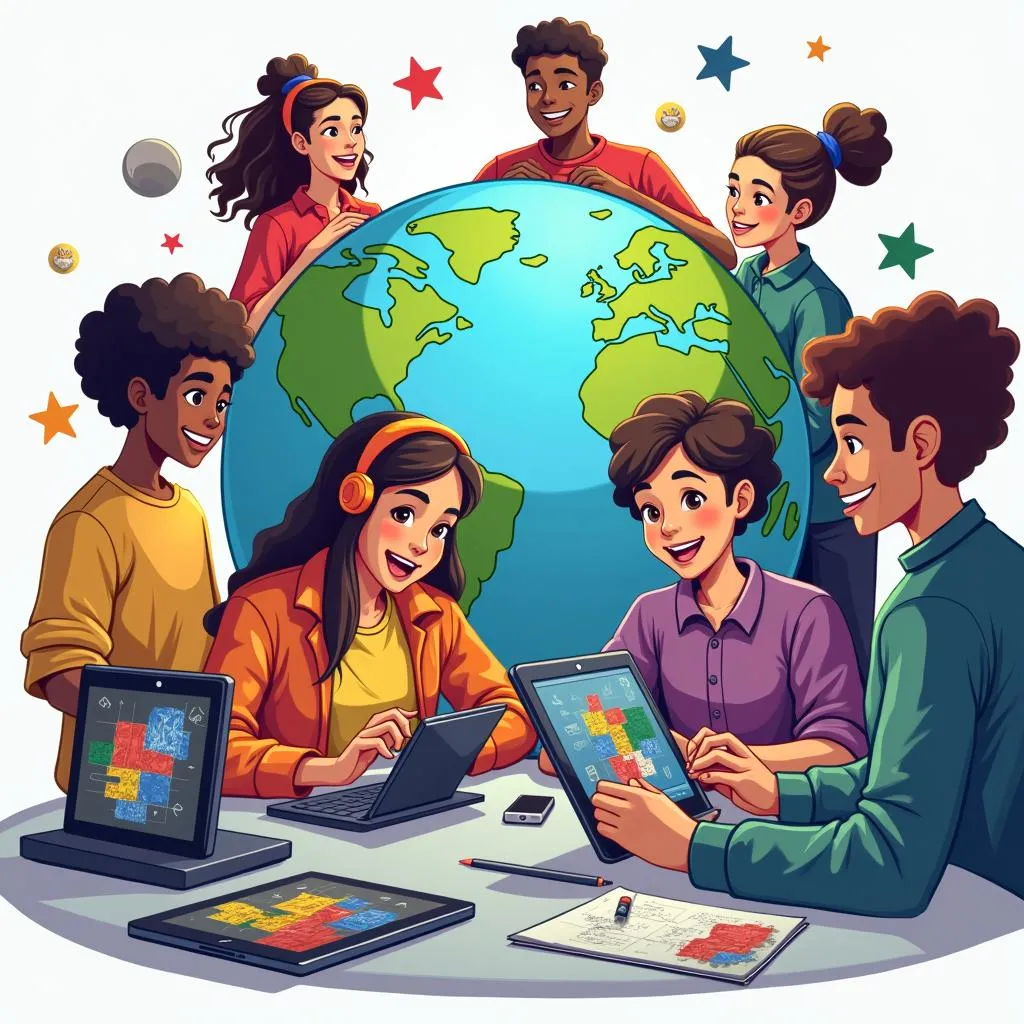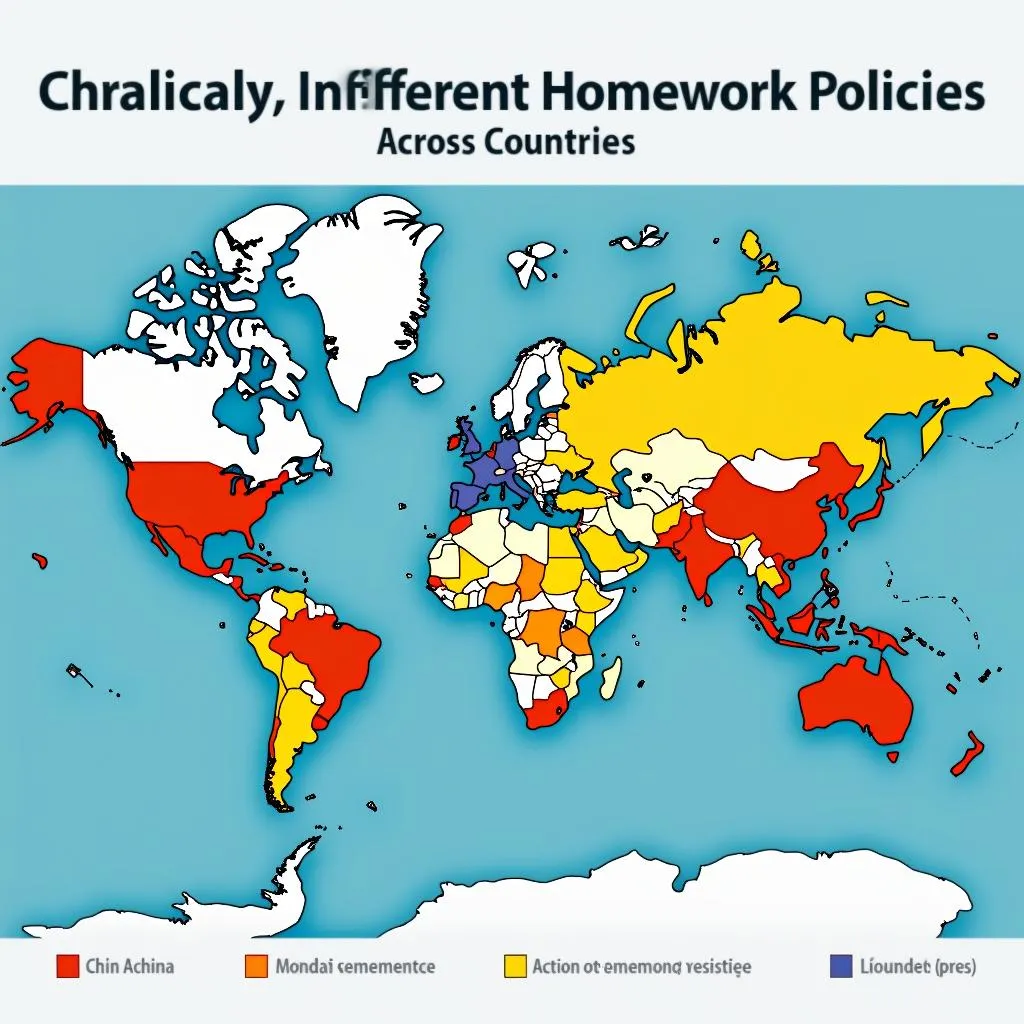Cultural differences in approaches to moral education play a significant role in shaping societies worldwide. This IELTS Reading practice test explores this fascinating topic through three passages of increasing difficulty. Let’s dive into the texts and questions to enhance your reading skills and expand your knowledge on this subject.
Nội dung bài viết
Cultural differences in family involvement in education can greatly influence moral education approaches. Understanding these variations is crucial for educators and policymakers alike.
Passage 1 – Easy Text
Moral education is an essential aspect of child development that varies significantly across cultures. In many Western countries, schools often focus on teaching critical thinking and individual decision-making skills as part of moral education. Children are encouraged to question authority and develop their own ethical framework. Conversely, Eastern cultures typically emphasize respect for elders, collective harmony, and adherence to traditional values in their approach to moral education.
In Japan, for instance, moral education is deeply ingrained in the school curriculum through a subject called “tokkatsu.” This approach integrates moral lessons into daily activities, fostering a sense of responsibility and cooperation among students. On the other hand, the United States tends to address moral education through character education programs that promote values such as honesty, respect, and responsibility.
Religious beliefs also play a crucial role in shaping moral education across different cultures. In predominantly Muslim countries, Islamic ethics form the foundation of moral teachings, while in predominantly Christian nations, biblical principles often guide moral instruction. Secular societies, however, may focus more on universal ethical principles and human rights in their approach to moral education.
Questions 1-5
Do the following statements agree with the information given in Passage 1? Write
TRUE if the statement agrees with the information
FALSE if the statement contradicts the information
NOT GIVEN if there is no information on this
- Western countries prioritize critical thinking in moral education.
- Eastern cultures always discourage questioning authority.
- Japan’s “tokkatsu” approach integrates moral lessons into daily school activities.
- The United States focuses solely on academic subjects in schools.
- Religious beliefs have no impact on moral education in any culture.
Questions 6-7
Choose the correct letter, A, B, C, or D.
- According to the passage, which of the following is true about moral education in Eastern cultures?
A. It emphasizes individual decision-making.
B. It focuses on questioning authority.
C. It promotes respect for elders and collective harmony.
D. It discourages traditional values.
- The passage suggests that secular societies are more likely to focus on:
A. Religious teachings
B. Universal ethical principles
C. Character education programs
D. Traditional values
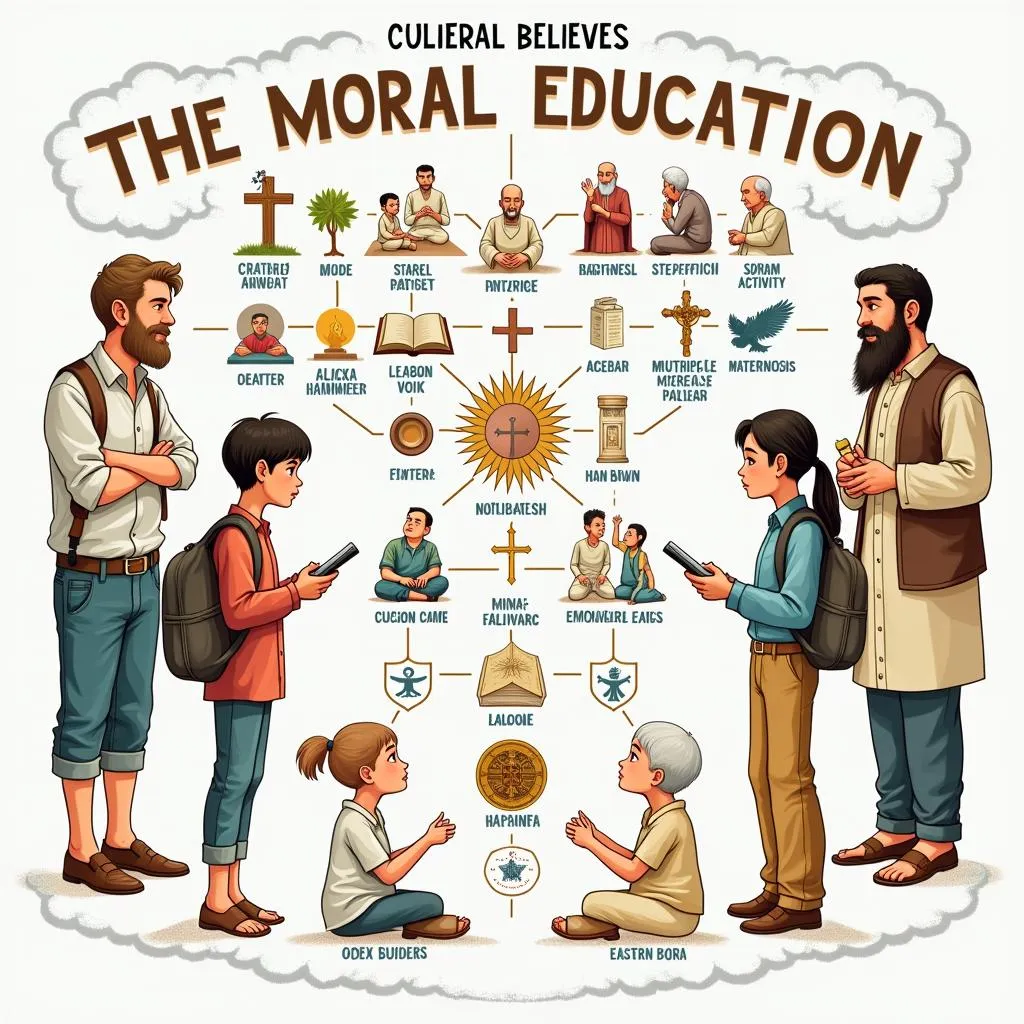 Diverse approaches to moral education across cultures
Diverse approaches to moral education across cultures
Passage 2 – Medium Text
The implementation of moral education in schools has been a subject of debate among educators and policymakers worldwide. While there is a general consensus on the importance of instilling ethical values in young minds, the methods and content of such education vary significantly across cultures and educational systems.
In many Asian countries, particularly those influenced by Confucian philosophy, moral education is often integrated into the core curriculum. For example, in China, “moral education” (德育, deyu) is a mandatory subject that encompasses political ideology, traditional virtues, and civic responsibility. This approach reflects the cultural emphasis on social harmony and collective well-being. Students are expected to memorize moral maxims and engage in activities that reinforce these values.
Contrastingly, Western educational systems tend to adopt a more individualistic approach to moral education. In the United States and parts of Europe, character education programs often focus on developing personal virtues such as honesty, responsibility, and respect for others. These programs may be taught as standalone subjects or integrated into existing curricula. The emphasis is typically on critical thinking and individual decision-making rather than rote memorization of moral precepts.
Some countries have taken innovative approaches to moral education. Finland, renowned for its progressive education system, incorporates ethics and values education into various subjects, encouraging students to reflect on moral issues in different contexts. This interdisciplinary approach aims to develop students’ ethical reasoning skills and prepare them for real-world moral dilemmas.
Critics of formal moral education argue that it can be indoctrinating and may not effectively translate into ethical behavior outside the classroom. They contend that moral development occurs primarily through real-life experiences and observations of adult behavior. Proponents, however, assert that structured moral education provides a necessary foundation for ethical decision-making and helps create a more cohesive society.
The debate surrounding moral education also extends to the role of religion in public schools. In secularized societies, there is often resistance to incorporating religious teachings into moral education curricula. Instead, these countries may focus on universal ethical principles derived from philosophical traditions and human rights frameworks.
As globalization continues to bring diverse cultures into closer contact, the challenge of developing culturally sensitive yet universally applicable approaches to moral education becomes increasingly pertinent. Educators and policymakers must navigate the delicate balance between preserving cultural values and preparing students for a interconnected world with diverse moral perspectives.
Questions 8-13
Complete the sentences below.
Choose NO MORE THAN TWO WORDS from the passage for each answer.
- In China, moral education is a ___ subject in schools.
- Western educational systems often focus on developing ___ virtues in their moral education programs.
- Finland’s approach to moral education is described as ___ , integrating ethics into various subjects.
- Critics argue that formal moral education can be ___ and may not translate to real-world behavior.
- The debate on moral education includes discussions about the role of ___ in public schools.
- Globalization presents a challenge in developing ___ approaches to moral education.
Questions 14-17
Choose the correct letter, A, B, C, or D.
- According to the passage, moral education in Asian countries influenced by Confucian philosophy:
A. Focuses primarily on individual decision-making
B. Is typically taught as a separate subject
C. Emphasizes memorization of moral maxims
D. Encourages students to question traditional values
- The Western approach to moral education is characterized by:
A. Mandatory political ideology classes
B. Focus on collective well-being
C. Emphasis on critical thinking
D. Rote memorization of ethical principles
- Finland’s approach to moral education is described as:
A. Strictly secular
B. Focused on religious teachings
C. Integrated across different subjects
D. Primarily based on memorization
- The main challenge in developing global approaches to moral education is:
A. Eliminating all cultural differences
B. Focusing solely on Western values
C. Ignoring ethical principles altogether
D. Balancing cultural preservation with universal applicability
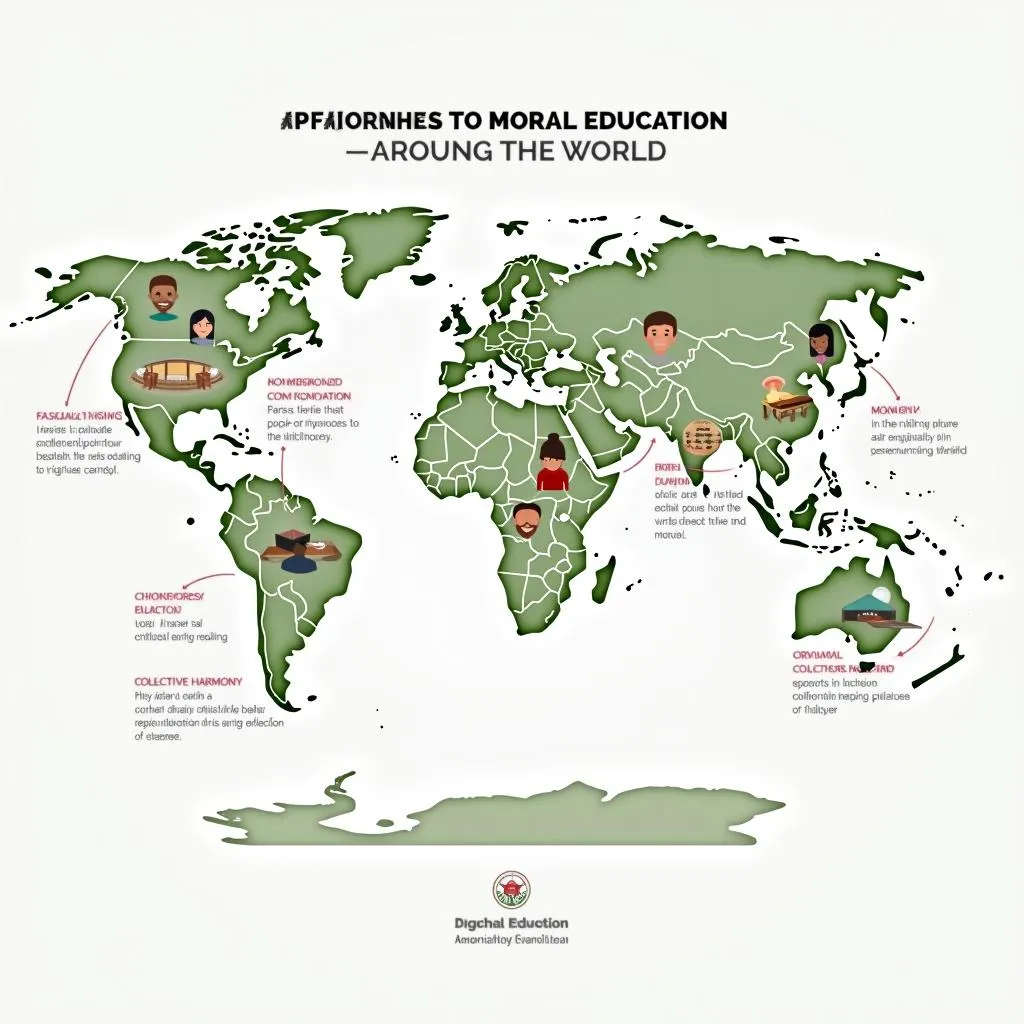 Diverse global approaches to moral education
Diverse global approaches to moral education
Passage 3 – Hard Text
The evolution of moral education in the 21st century presents a complex tapestry of cultural, philosophical, and pedagogical approaches that reflect the diverse values and beliefs of societies worldwide. As globalization continues to reshape our understanding of ethics and morality, educational systems are grappling with the challenge of preparing students for an increasingly interconnected world while preserving cultural identities and traditional values.
In East Asian countries, particularly those with a strong Confucian heritage, moral education has traditionally been characterized by a focus on collective harmony, filial piety, and respect for authority. However, recent years have seen a gradual shift towards incorporating more individualistic elements. For instance, South Korea’s moral education curriculum, while still emphasizing traditional values, has begun to integrate concepts of personal autonomy and critical thinking. This hybrid approach attempts to balance the preservation of cultural norms with the demands of a globalized economy that values innovation and independent thought.
Conversely, Western educational systems, long associated with individualistic approaches to moral education, are increasingly recognizing the importance of fostering a sense of community and social responsibility. The United States, for example, has seen a resurgence of character education programs that, while still focusing on personal virtues, also emphasize the individual’s role in contributing to the greater good. This shift reflects a growing awareness of the interdependence of global societies and the need for ethical frameworks that extend beyond personal gain.
The role of religion in moral education continues to be a contentious issue, particularly in secular societies. France’s principle of laïcité, which strictly separates religion from public education, has led to a moral and civic education curriculum that focuses on republican values and secular ethics. This approach, while aiming to create a unified civic identity, has faced criticism for potentially marginalizing religious minorities and their moral traditions.
In contrast, countries like Indonesia have sought to integrate religious and secular approaches to moral education. The Pancasila ideology, which forms the foundation of Indonesian civic education, attempts to synthesize diverse religious teachings with national principles of unity and social justice. This syncretic approach reflects the country’s multicultural heritage and its efforts to maintain social cohesion in a diverse population.
The advent of digital technologies has introduced new dimensions to moral education. As students increasingly engage with global peers through online platforms, they encounter diverse ethical perspectives and moral dilemmas that traditional curricula may not adequately address. Educational systems worldwide are thus challenged to develop moral education frameworks that equip students with the critical thinking skills and ethical reasoning abilities necessary to navigate the complexities of digital citizenship.
Moreover, the growing awareness of global challenges such as climate change, economic inequality, and human rights violations has prompted a reevaluation of moral education’s scope. Many countries are now incorporating elements of global citizenship education into their moral education curricula, aiming to foster a sense of responsibility that extends beyond national borders.
The efficacy of various approaches to moral education remains a subject of intense debate and empirical inquiry. While some studies suggest that structured moral education programs can positively influence students’ ethical reasoning and behavior, others argue that the impact is limited and short-lived. Critics contend that genuine moral development occurs primarily through real-life experiences and the modeling of ethical behavior by adults, rather than through formal instruction.
As educational systems continue to evolve, the future of moral education lies in developing adaptive, culturally sensitive approaches that can respond to the changing ethical landscape of the 21st century. This may involve a greater emphasis on dialogue and exchange between different cultural traditions, the integration of ethical considerations across all areas of the curriculum, and a focus on developing students’ capacity for moral reasoning in complex, real-world situations.
Ultimately, the diverse approaches to moral education reflect the ongoing negotiation between universal ethical principles and culturally specific values. As societies become increasingly interconnected, the challenge lies in fostering moral frameworks that can bridge cultural divides while respecting the rich tapestry of human ethical traditions.
Questions 18-22
Choose the correct letter, A, B, C, or D.
- According to the passage, moral education in East Asian countries is:
A. Exclusively focused on traditional values
B. Rejecting all aspects of Confucian heritage
C. Gradually incorporating more individualistic elements
D. Identical to Western approaches
- The shift in Western educational systems towards emphasizing social responsibility is attributed to:
A. A complete rejection of individualistic values
B. Government mandates
C. Recognition of global interdependence
D. Pressure from religious institutions
- The French approach to moral education in public schools is characterized by:
A. A strong emphasis on religious teachings
B. A focus on republican values and secular ethics
C. The integration of diverse religious perspectives
D. An absence of any form of moral instruction
- Indonesia’s approach to moral education is described as:
A. Strictly secular
B. Exclusively based on religious teachings
C. Attempting to synthesize religious and national principles
D. Identical to the French model
- The passage suggests that the impact of digital technologies on moral education has:
A. Simplified the teaching of ethics
B. Eliminated the need for traditional moral education
C. Introduced new ethical challenges and perspectives
D. Been largely ignored by educational systems
Questions 23-26
Complete the summary below.
Choose NO MORE THAN TWO WORDS from the passage for each answer.
The future of moral education in the 21st century involves developing approaches that are both adaptive and (23) . This may require increased dialogue between different cultural traditions and the integration of ethical considerations across the entire (24) . The goal is to enhance students’ capacity for moral reasoning in (25) situations. Ultimately, moral education must balance (26) ethical principles with culturally specific values in an increasingly interconnected world.
Questions 27-30
Do the following statements agree with the claims of the writer in Passage 3? Write
YES if the statement agrees with the claims of the writer
NO if the statement contradicts the claims of the writer
NOT GIVEN if it is impossible to say what the writer thinks about this
- All countries have reached a consensus on the best approach to moral education.
- Digital technologies have created new ethical challenges for students.
- Empirical studies universally support the effectiveness of structured moral education programs.
- The future of moral education will likely involve a combination of universal principles and cultural specificity.
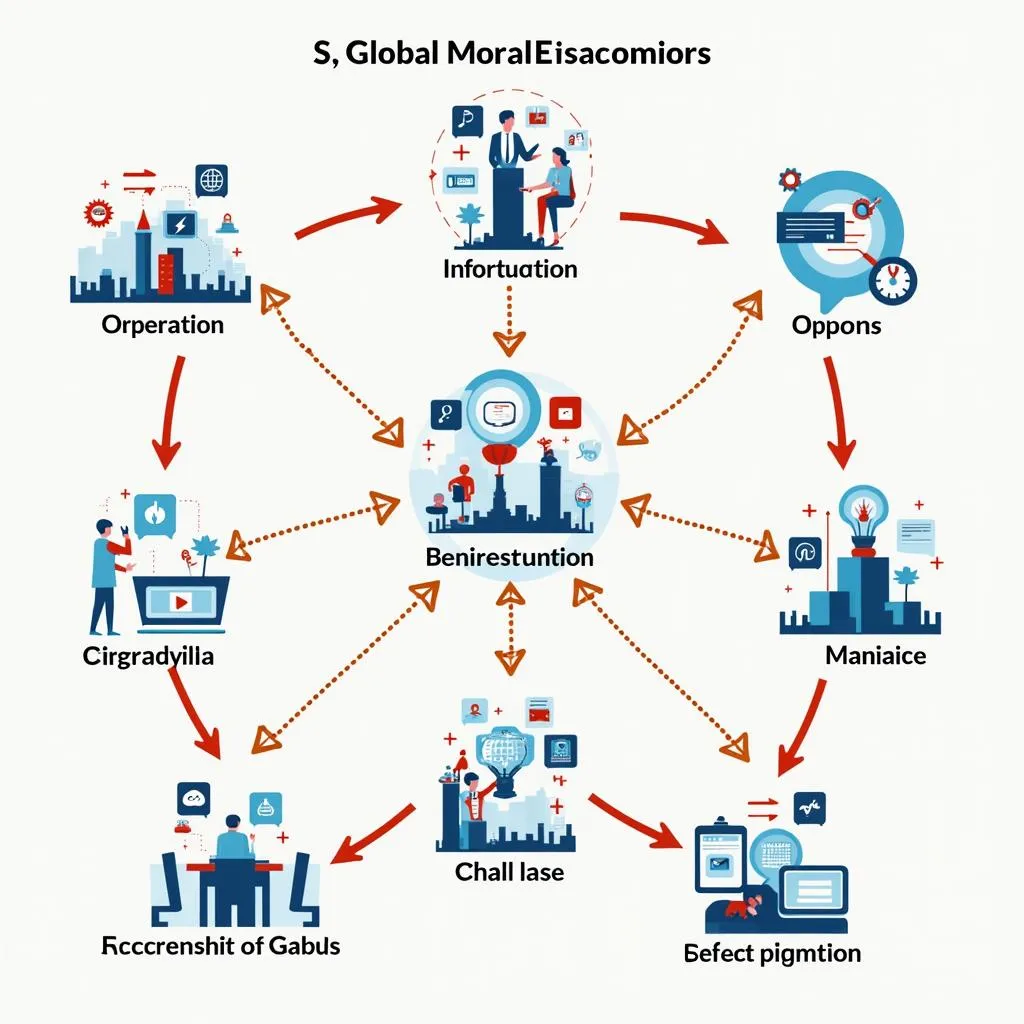 Challenges in global moral education
Challenges in global moral education
Answer Key
Passage 1
- TRUE
- NOT GIVEN
- TRUE
- FALSE
- FALSE
- C
- B
Passage 2
- mandatory
- personal
- interdisciplinary
- indoctrinating
- religion
- culturally sensitive
- C
- C
- C
- D
Passage 3
- C
- C
- B
- C
- C
- culturally sensitive
- curriculum
- complex, real-world
- universal
- NO
- YES
- NO
- YES
The role of mental health support in educational institutions is another important aspect to consider when discussing comprehensive approaches to education, including moral education.
This IELTS Reading practice test has provided valuable insights into the diverse approaches to moral education across cultures. By engaging with these texts and questions, you’ve not only enhanced your reading skills but also gained a deeper understanding of how different societies approach the crucial task of instilling ethical values in their youth. Remember to apply the strategies you’ve learned here in your IELTS preparation and future academic pursuits.
